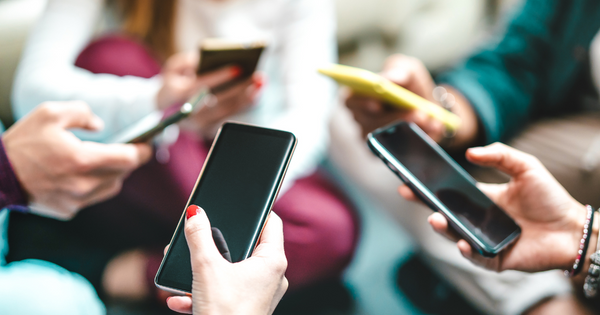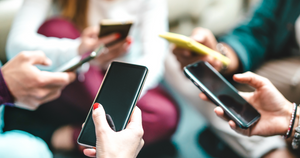Unplugged Potential for Educators and Students
Oct 23, 2024
Let's be honest—our phones wield a significant power over our lives, but we must admit that we are the ones giving it that power. We pick up the phones instead of tackling our to-do list. We pick up our phones even though we finally have a free second to breathe. We pick up the phones to lose track of 30 minutes in a scroll. We give phones the power.
Think about it—we are adults struggling with these boundaries. Most of us did not grow up trying to fight this overwhelming power as teenagers (or even younger). As educators, we must examine the influence phones have on our lives and empower our students to do the same. It's a modern challenge that now comes with teaching territory.
To feel empowered to re-balance this power, it's crucial to know that there is SO much more happening than we even realize.
What Schools Are Already Doing
Companies like Yondr are offering innovative tools to help enforce the physical boundary that keeps students separated from their phones. Courtney Gargiulo, English Teacher and Building Union Chair, shares her experience using Yondr at her high school in Cleveland:
2. "I feel bored so I look at my phone."
In her podcast episode, "5 Things I Did To Stop Scrolling: How To Put Down Your Phone & Reclaim Your Attention" Liz Moody explores how "desensitized to dopamine" we are. Things that typically bring us joy feel less exciting because we are constantly in "dopamine depletion." Our phones grant us immediate dopamine hits and we are nearly numbing ourselves to true joy because "life isn't a constant reward treadmill." It's a scary thought to envision this vicious cycle already occurring in teenagers' minds.
If you have interest in learning more about dopamine, Dr. Anna Lembke, author of Dopamine Nation, explores how to balance our dopamine—such an important topic for young people.
3. "I am already struggling to focus so I look at my phone."
Did you know it takes 23 minutes to regain full focus after your attention is pulled away? Dr. Gloria Mark of UC Irvine and author of Attention Span: A Groundbreaking Way to Restore Balance, Happiness and Productivity cites this eye-opening number. If a student's parent texts them during school, their focus instantly shifts from the lesson to their phone, requiring an additional 23 minutes to regain concentration on the content. Class could nearly be over by then! Learning simply cannot happen with these types of distractions.
4. "I look at my phone because it's a habit."
Create physical barriers (and stop making excuses as to why you can't!). Move your phone to another room at night or use a screen-time app. There are also neat devices such as The Brick that add in extra steps to unlock blocked apps. Figure out a solution to your phone being by your side constantly.
5. “I want to see what's 'new' so I look at my phone."
How do you feel after you realize 30 minutes have been sucked up by your phone? Surely there isn't a sense of relaxation or inspiration. In fact, it's usually a bolt of anxiety, regret, or self-doubt that takes over. Since we will get on our phones at some point, take time to filter through who you follow on social media and assess the apps you have access to on your phone. Then, if you are spending time on an app, hopefully the content is more energizing.
The next time you or your student goes to check their phone, ask, "What do I really need from my phone right now?" Connection? Excitement? Relaxation? This intense pull to your phone won't last forever. Give yourself what you really need, such as an in-person conversation with a friend, a walk outside, or some quick movement. Then, soon enough, your relationship with your phone can become a healthy, empowering thing.
It's important to establish our own boundaries so that we can empower students to do the same. Regardless of your school's phone policy, educators must empower students to navigate the technology takeover—fuel them with confidence, control, and clarity to recognize the unplugged potential that is awaiting them.

When you think about it, phones really do have the power to affect so many Whole Teacher categories. No wonder their hold is so strong...





